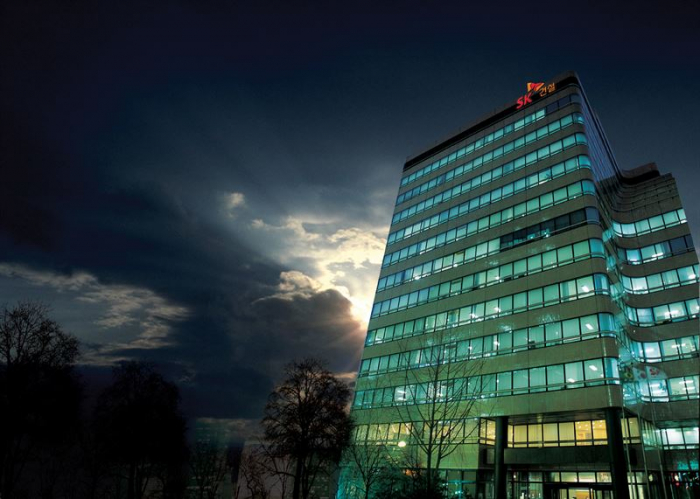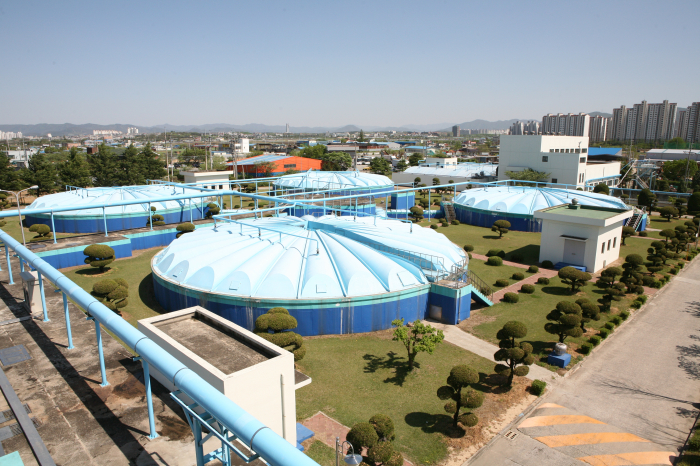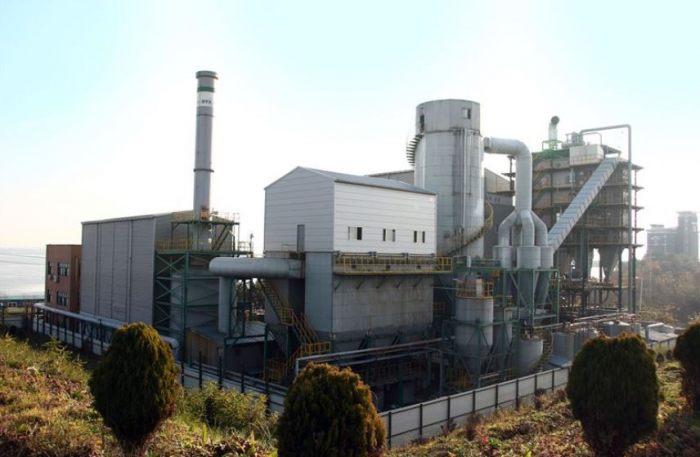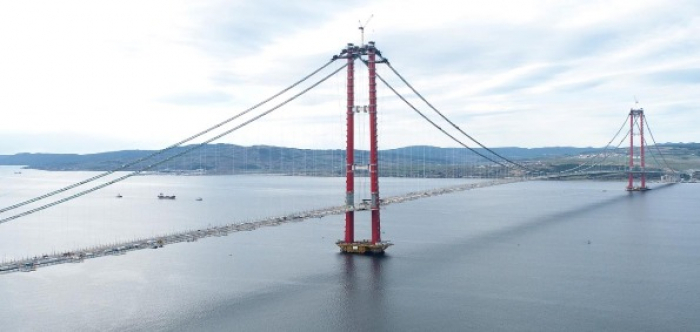SK Group’s 'financial story' running out of steam?
PE investors are turning away from pre-IPOs on concerns over valuations and the fading hype around IPOs
By Jun 14, 2022 (Gmt+09:00)
LG Chem to sell water filter business to Glenwood PE for $692 million


Kyobo Life poised to buy Japan’s SBI Group-owned savings bank


KT&G eyes overseas M&A after rejecting activist fund's offer


StockX in merger talks with Naver’s online reseller Kream


Mirae Asset to be named Korea Post’s core real estate fund operator



South Korean private equity firms that plan to inject a total of 1.2 trillion won ($1 billion) into SK Ecoplant Co. are having a hard time raising the money as domestic pension funds, the main source of their funding, are turning a cold shoulder on pre-IPOs.
The unexpected IPO cancellations last month by two other arms of the country’s No. 2 conglomerate -- SK Shieldus Co. and One Store Co. – seemed to serve as a wake-up call for institutional investors, who had rushed to IPO candidates on expectations of windfalls.
SK Shieldus’ IPO flop was the crucial reason not to invest in SK Ecoplant, according to multiple sources who had reviewed pre-IPO investment in the construction and waste recycling company.
“It seems like the market had been in a waking dream,” said a Korean retirement fund official.
The aborted IPOs of the security services provider and the homegrown app store highlighted the growing redemption risks for unlisted companies. Also, they added to doubts over SK Group Chairman Chey Tae-won's watchword “financial story,” for which the group called PE firms its essential partners.

SK ECOPLANT
SK Ecoplant is selling a combined 400 billion won in preferred shares to Korea Investment Securities Co. and Glenwood Credit, on top of the 800 billion won it is set to raise from other domestic PE firms.
Its post-investment valuation is estimated at 4 trillion won, or 94,700 won per share. That is less than half of the 10 trillion won the company targets for its IPO, which is likely to take place in the second half of next year.
If it goes public at its targeted valuation, its pre-IPO investors are supposed to pocket about twice their investment.
Despite the company's offer for an additional cut in its new share issuance price by about 10%, however, some limited partners demanded further strengthening of downside protection, but finally withdrew their investment plan.
For the 800 billion won fundraising, NH Investment & Securities Co. dropped out of a consortium with Seoul-based Brain Asset Management, which planned to inject a combined 200 billion won into SK Ecoplant.
| SK Ecoplant's pre-IPO fundraising plan | |
| Investors | Investment amount |
| Premier Partners | 280 billion won |
| Ium Private Equity | 200 billion won |
| *Brain Asset Management | 200 billion won |
| Find Value Asset Management | 120 billion won |
| Korea Investment Securities | 200 billion won |
| Glenwood Credit | 200 billion won |
| Note: *Brain Asset had planned to raise the fund jointly with NH Investment & Securities | |
POSITIONING
As was the case of other Korean companies that had made successful stock market debuts over the past few years, SK Ecoplant is striving to change its corporate identity.
As part of such an effort, it has acquired a number of waste treatment companies and changed its name from SK E&C.
Moreover, it split off its construction business into SK Engineering Co. early this year and sold its 50% plus one share to a consortium of Ium PE and Mirae Asset Securities Co. for 500 billion won.
At the time, SK Ecoplant did not treat the engineering arm as a subsidiary for accounting purposes to make it look more like a waste treatment company.

To achieve its targeted value of 10 trillion won, SK Ecoplant must position itself as an environmental firm.
Large construction companies listed on the Korean stock market are traded at five times their earnings before interest, tax, depreciation and amortization (EBITDA) on average. That is about one-fourth of that of domestic and foreign environmental companies that incorporate ESG factors into their practices.
SK Ecoplant planned to spend 1.2 trillion won it would raise from PE firms acquiring other eco-friendly companies to quadruple its EBITDA to 850 billion won by next year. Then its corporate value will likely reach 10 trillion won, or 12 times its EBITDA.
But such efforts may not be enough to appeal to investors.
“A company making money mainly from the construction business should be treated as a construction company and a company making money from security services is just a security firm,” a retirement fund official said in reference to SK Ecoplant and SK Shieldus.
SK Ecoplant derives 90.8% of its sales and 85% of operating profit from its traditional housing, civil engineering and plant and infrastructure orders.

BACK TO BASICS
Reduced expected returns on the back of interest rate rises pushed institutional investors to get back to the basics: the company’s main business. Amid concerns over overstated PE valuations, they are also scaling back new PE investments.
For leveraged buyouts, they need to pay interest rates of about 6.5% for five-year loans, versus 3.9% last year.
"Investors began to review the contractual terms (of PE funding) in more detail," said a brokerage company analyst covering holding companies.
For SK On Co., the world's No. 5 electric vehicle battery maker has seen its pre-IPO funding for around 3 trillion won delayed.
Its shortlisted investors in SK On -- BlackRock, The Carlyle Group, KKR and Singapore's GIC – took a step back to weigh the growing risks of battery makers on the back of soaring raw material prices and subdued investor sentiment, according to sources last April.
In the run-up to its IPO application, SK Shieldus hired Morgan Stanley, the most expensive underwriter in South Korea, to raise between 300 billion and 400 billion won in pre-IPO funding.
However, Morgan Stanley failed to drum up interest for the country's No. 2 security services provider, which estimated its corporate value at 4 trillion won, far above its bigger domestic rival S-1 Corp.’s market value of 2.6 trillion won.
Write to Jun-Ho Cha at chacha@hankyung.com
Yeonhee Kim edited this article






